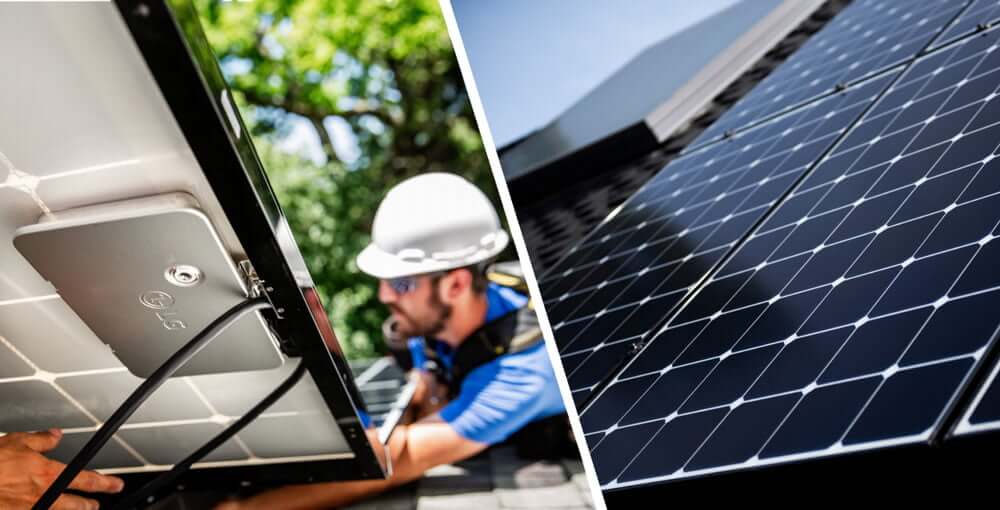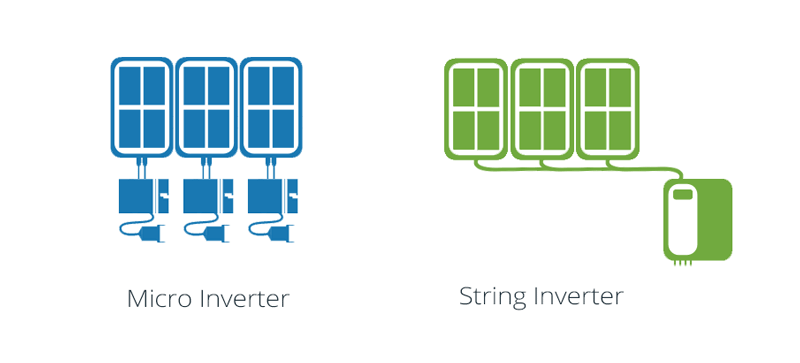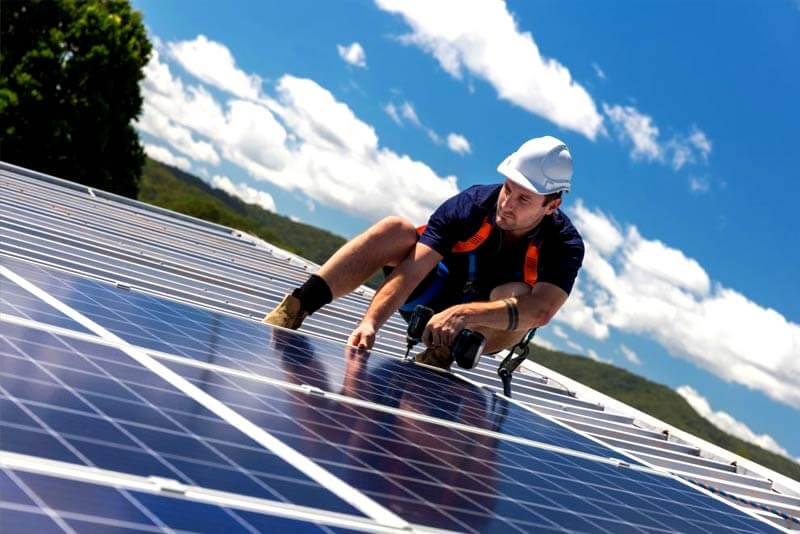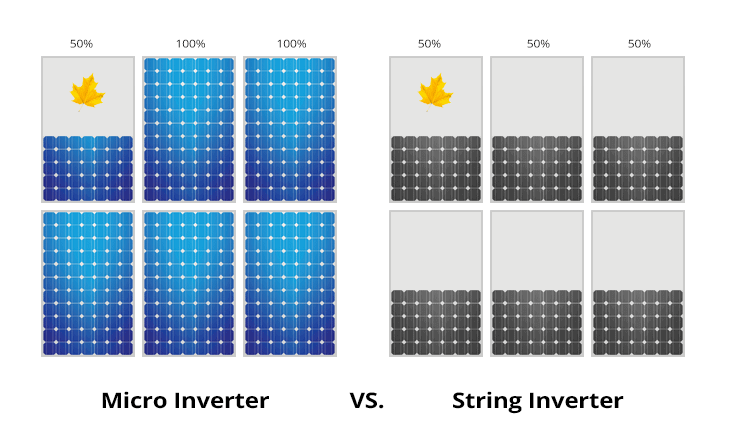Home AC Solar Panels
AC Solar Panels: The Complete 2025 Guide
Manufacturers are always on the lookout for energy solutions that are cheaper, reliable, and uncomplicated. AC solar panels, equipped with microinverters, stand out as top innovations in this area.
AC solar panels, or alternating current solar panels, are those panels pre-fitted with an inverter. The integrated inverter converts the direct current (DC) that comes from sunlight into an alternating current ready for use. So, instead of needing a central inverter to convert the electricity from the solar panels before using it in a house, the power produced is immediately usable from the solar panels.
Inverters typically come as a central system, which receives electricity from all the panels in a string and then converts the power from DC to AC, ready for use. These panels remove the need for this.

Table of Contents
ToggleBenefits of AC solar panels
While AC solar panels tend to be more expensive than the regular panels because of the integrated inverters, the benefits make the cost worth it.

Panel-level monitoring
Solar panels that function with a central inverter rely on the performance of the panel with the lowest productivity. Since they work with one inverter, the panels work together and if one becomes faulty, the entire system malfunctions.
It also means you cannot tell which panel is defective and may have to work on the entire solar panel system. These are some downsides of using a string inverter.
On the other hand, panels that work with microinverters, such as AC solar panels, perform better. Individual panels perform independently of others and rely on the dedicated inverters installed on their backs. Consequently, you can monitor each panel and if one fails, it is easy to detect and fix.
Quick maintenance
Since each solar panel operates with an individual inverter, it is easier to maintain the entire solar panel system. When one panel becomes defective, it is easier to detect it and fix the problem. The solution is also quicker and more cost-effective than having to replace several panels.
While it is more expensive to buy AC solar panels, the gains outweigh the cost. Moreover, the expense rests with the initial purchase. Any other expense is usually less than when you use regular panels and have to run maintenance checks.
Easy installation
The ease of installing AC solar panels is one of the most prized benefits. They are easier and quicker to store, transport, and install.
Solar panel installers do not have to spend a long time installing the panels and a separate inverter because the inverters are already a part of the panels.
In addition, there is no need for wire installations for direct current. This is another area where installers spend time because they have to be careful in securing wires traveling from the panels to the inverters and protecting them from the elements. With AC solar panels, these stages of the installation are unnecessary because of the integrated inverters.

Improved power production
Another key advantage is improved electricity production from AC solar panels. As explained before, solar panels connected to a central inverter produce energy based on the performance of the least productive panel. Therefore, they are not always reliable.
However, AC solar panels have individual performances, meaning that each panel produces energy at its own pace. And when each panel maximally produces energy, the effort converts to better power production.
They also reduce the impact of a lack of adequate sunlight. If one panel is shaded, it does not reduce the entire system’s capacity to produce, unlike how central inverter systems work. If one AC solar panel is shaded, the others continue generating power for use.
Partial shading issues eliminated
With regular panels and inverters, when your panel array receives some shade, it affects the whole system. This is because they are all connected together like a circuit. If one part of the circuit fails, the whole system fails.
With AC solar panels they are each operating independently of other panels, so if a leaf were to blow on one panel it would only affect that panel.
This means better energy production over the long term.

Future expansion
Typically, when someone wants to expand a solar power system, they have to buy a bigger inverter to accommodate the increase in panels. In a few cases, they may overhaul the entire system. Doing this can be inconvenient and expensive.
With AC solar panels, expanding the solar power system is much easier and more convenient. You do not need to buy a bigger inverter or discard old panels. All you have to do is buy extra panels or replace defective ones. Each new one comes with its inverter.
Compare Solar Panel Quotes
Table of Contents
Toggle









